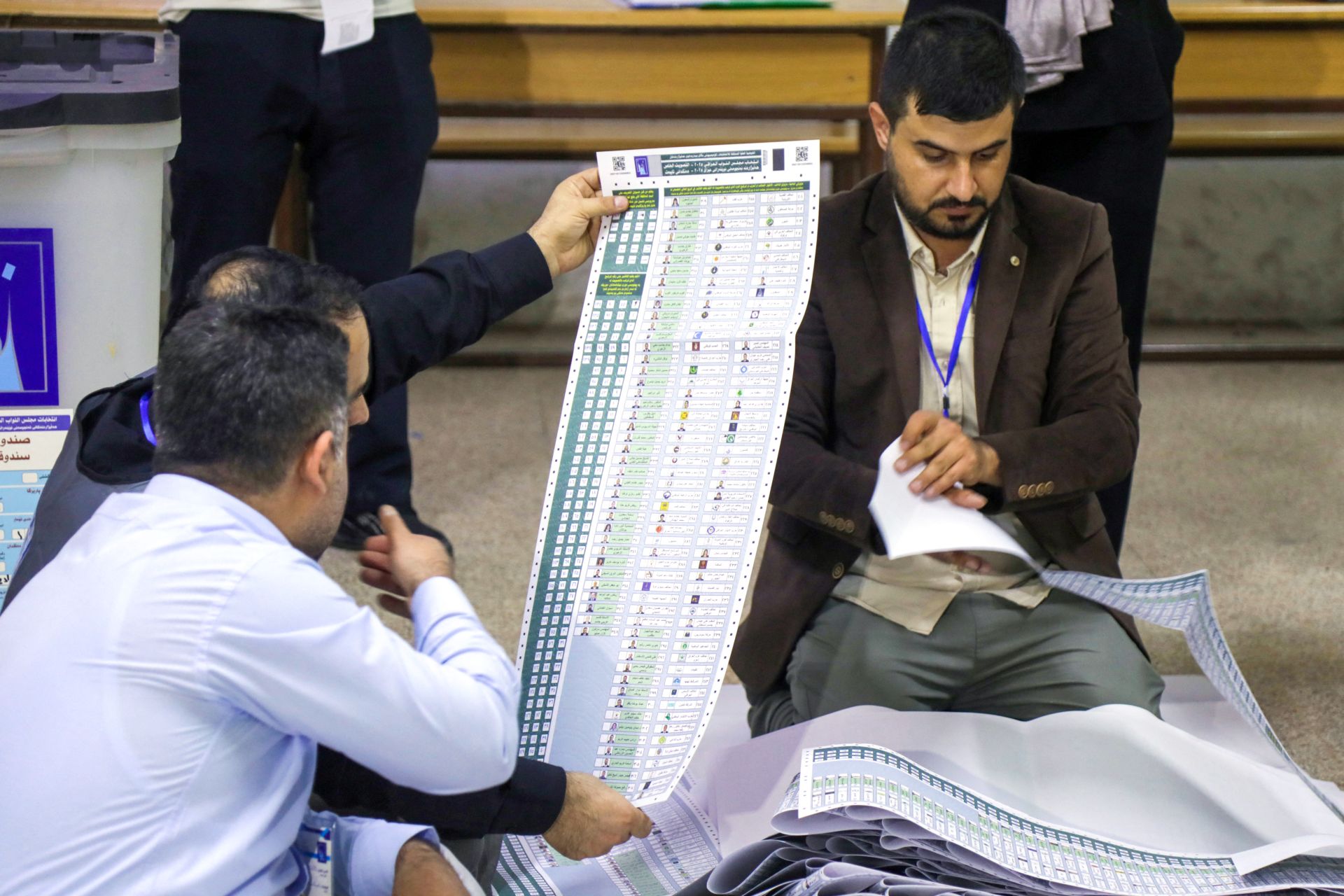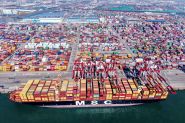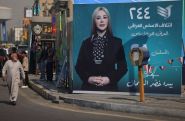- Home
- Middle East
- What Next After Iraq's General Election?

Iraq heads to the polls to elect a new Parliament amid complex geopolitical tensions between the US and Iran. Which ©SAFIN HAMID / AFP
Iraqis head to the polls on Tuesday to elect a new parliament for a four-year term in a vote that will be closely watched in Washington and Tehran.
Here is a look at what could come next and what the regional impact could be.
What happens after the vote?
Iraq's Supreme Court must first ratify the election results.
Two weeks later, the newly elected members of parliament should convene for a swearing-in ceremony and to choose their speaker, who by convention should be a member from the Sunni community.
Within 30 days of their first meeting, lawmakers should elect the country's president, who must be a Kurd and receive a two-thirds majority vote.
The president then has to appoint within 15 days a prime minister, who will be named by the largest Shiite bloc, formed through post-election alliances.
Once the prime minister is chosen, he has one month to form a government and present it to parliament for a vote of confidence.
But these processes are often challenging, with deadlines frequently missed due to political bickering among rival factions.
Parties tend to delay votes, opting instead for intensive talks, which can impact not only parliamentary proceedings but also cause unrest.
How is the government formed?
Naming a PM and forming a government has proven to be the most taxing post-election process.
In previous parliaments, parties from the Shiite majority have struck compromise deals to work together and form a government.
With an outright majority almost impossible to achieve by any single list, the next leader will be voted in by whichever coalition can attract allies and become the biggest bloc.
In 2021, influential Shiite cleric Moqtada Sadr's bloc emerged as the biggest winner in parliament, but still fell far short of an outright majority.
He withdrew from parliament following a dispute with Shiite parties that did not support his bid to form a majority government.
Instead, influential parties came together under the umbrella of the Coordination Framework and formed a larger bloc of pro-Iran groups and factions that brought PM Mohammed Shia al-Sudani to power.
What is the regional impact?
Like his predecessor, the next prime minister will have to maintain the delicate balance between Iraq's allies, Iran and the US.
Since the US-led invasion, Iran has seen its Shiite allies installed in Baghdad's halls of power.
For more than two decades, Tehran has held a major sway in Iraqi politics. It does not only back influential politicians but also supports armed groups.
But the "Iranians are the weakest they've been" since 2003, said political analyst Hamzeh Hadad.
The past two years have seen Israel inflict heavy losses on Iran-backed groups, including Palestinian militants Hamas, Hezbollah in Lebanon, and the Houthis in Yemen.
Iran itself was on the receiving end of an unprecedented Israeli bombing campaign in June.
Tehran has several interests in Iraq ahead of the vote: retaining its influence, challenging the US with powerful Tehran-backed armed groups, and keeping the Iraqi market open to products from its crippled economy.
But the Iranians "know it is not in their best interest to show much public interference" in Iraq, their only close regional ally that stayed out of Israel's crosshairs, said Hadad.
"Even when Iran is weak, it's not necessary that it has to flex. It has just become a natural response of Iraqi leaders to give Iran more precedence," he said.
Washington on the other hand, wants the opposite: to cripple Iran's influence.
It has long pressured Iraq to disarm Iran-backed groups.
By sanctioning Iraqi entities and banks, it has sought to undermine Iran's ability to evade sanctions -- a strategy it is expected to maintain after Tuesday's vote.
With AFP
Read more



Comments